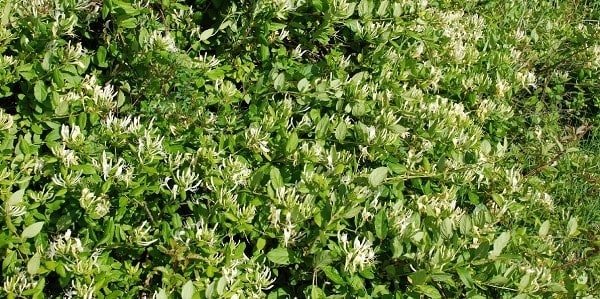Scientists Discover Potential Ebola Cure?

Western medicine has developed significantly over the years.
Although not perfect now, it is in a better position than it was 100 years ago in terms of the complete cure especially of infectious diseases.
Among the earliest discoveries were antibiotics, which treat many bacterial infections, but not without side effects especially in the gastrointestinal tract.
But now scientists in China have discovered what they claim is the first ‘virological penicillin’, which is likely to establish itself as an ‘antibiotic for viruses.’
But the best news is that this “virus killer” is actually a natural ancient Chinese herb. Perhaps soon its effect will be tested on the Ebola virus.
Eager to discover the antiviral properties of the honeysuckle plant / lonicera japonica / or clove, a team of scientists led by Dr. Chen-Yu Zhang of Nanjing University in China identified a molecule in the plant that they named MIR2911 /honeysuckle-encoded atypical micro RNA 2911/.
Researchers report that this moleculeis the first active ingredient to directly target influenza viruses that cause H1N1 swine flu, H5N1 bird flu, and H7N9.
Actually, the herb honeysuckle is a very well-known natural remedy for many ailments. In traditional Chinese medicine, the plant has been used effectively for centuries to treat flu infections.
Now these properties of it are also supported by the conducted scientific studies, which were conducted based on its action in the form of tea.
But the mechanism by which these antiviral compounds hinder the ability of viruses to replicate was not known until now.
The researchers found that the molecule MIR2911 inhibits two genes of influenza viruses that are required for their replication PB2 and NS1.
With its activity against influenza viruses, MIR2911 as a single ingredient and MIR2911 contained in honeysuckle tea may be the next effective therapeutic agent that can be used to control the deadly infections .
Impressively, administration of MIR2911 or honeysuckle tea resulted in a dramatic reduction in mortality in mice caused by H5N1 virus infection.
The results of the study conducted by the Chinese scientists unequivocally show that MIR2911 is the first active ingredient discovered in traditional Chinese medicine that can be directly used against many different viral infections.
Based on it, a new type of natural product can be created that effectively inhibits viral infections.
The next step is to test the antiviral effect of the herb on humans. Only then will it be possible to officially confirm the effectiveness of the herb honeysuckle in relation to viral infections.
It is also important to emphasize that the inhibitory effect of honeysuckle herb tea on viral replication weakens and completely disappears upon administration of the anti-micro RNA MIR2911 /antagomir/.
This shows that the physiological concentration in the decoction of the medicinal plant is quite sufficient to directly suppress the viral replication of H1N1 /swine flu virus/.
MIR2911 also suppresses in vitro and in vivo replication of H5N1 avian influenza viruses and the virulent strain of the same virus, which is a combination of three viruses.
The new, according to the authors of the study in China, “virological” penicillin can be used as a completely new effective drug and preventive agent not only against viruses of the flu strains Ah, but potentially against any other viruses.



